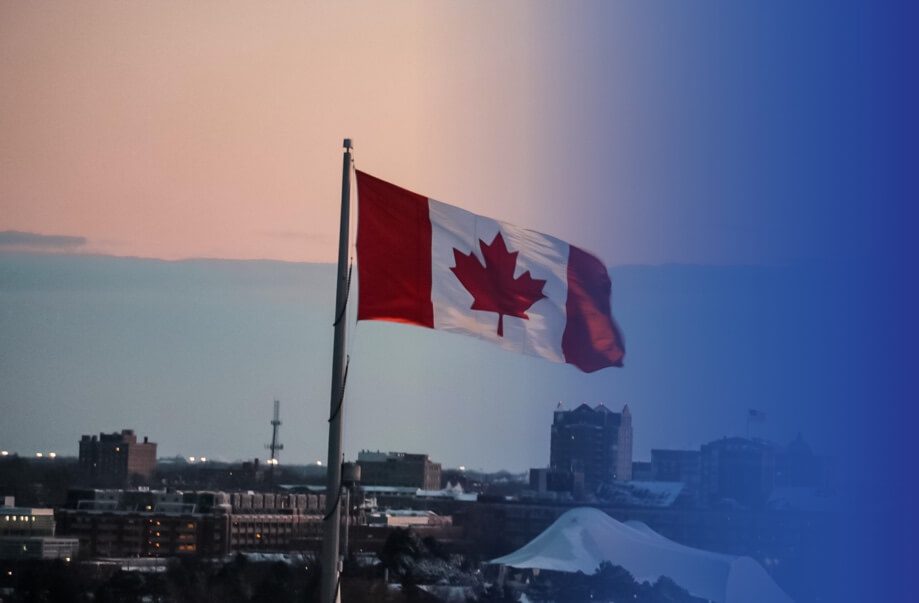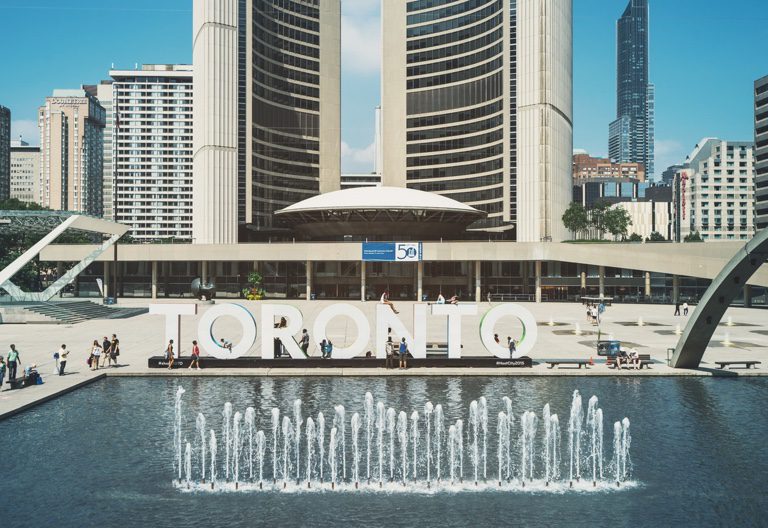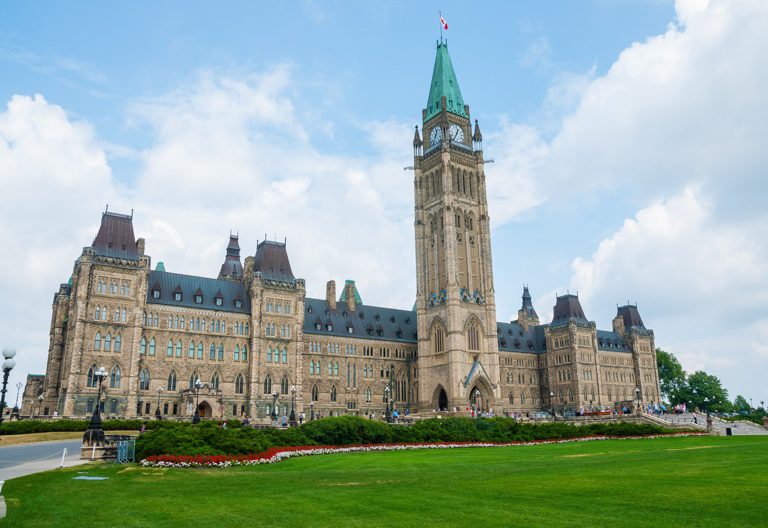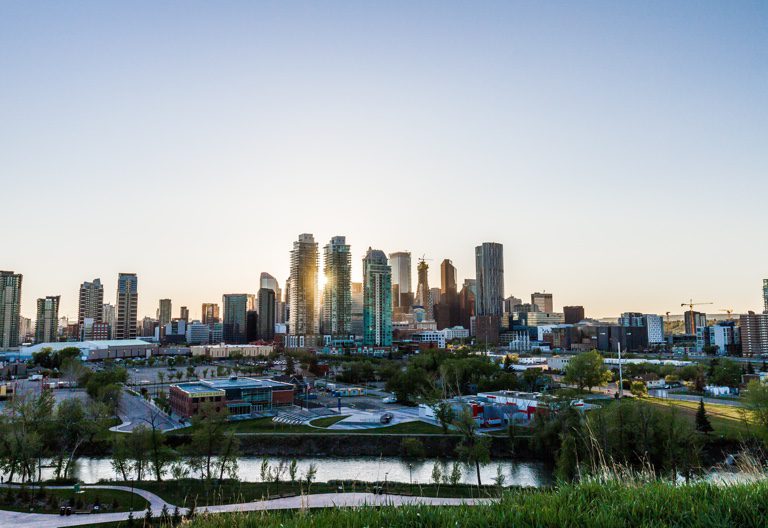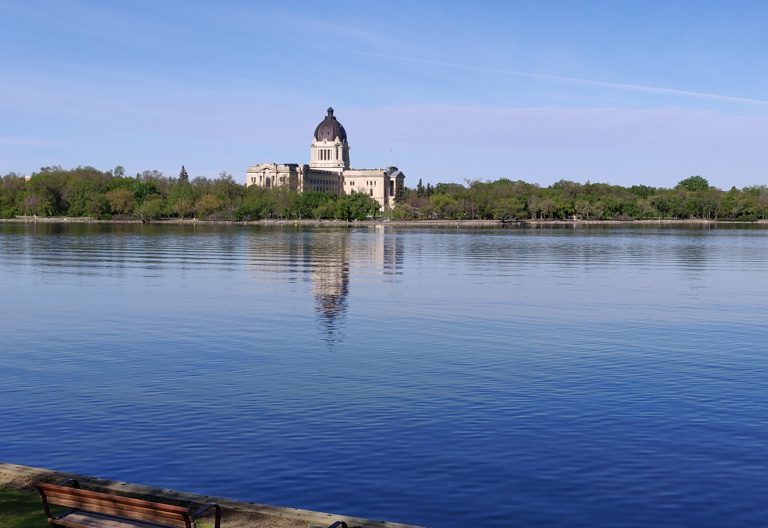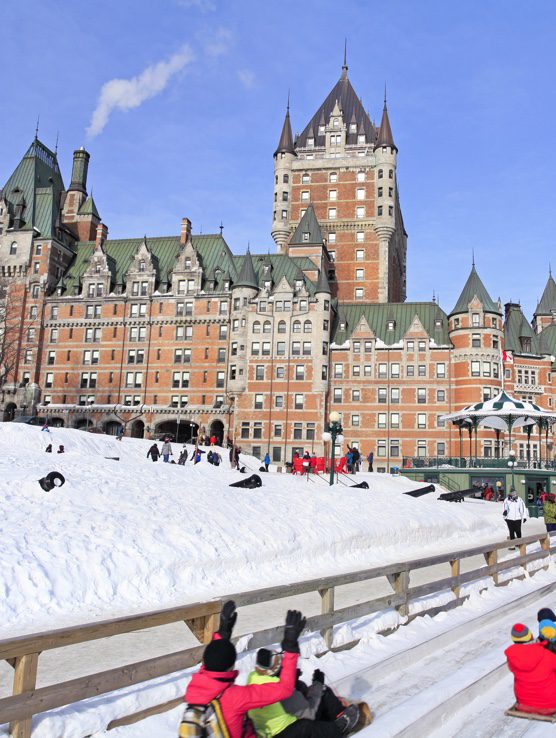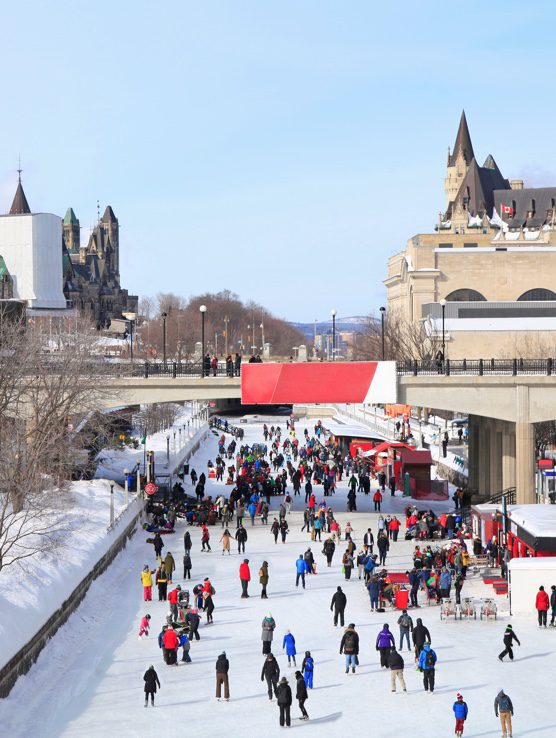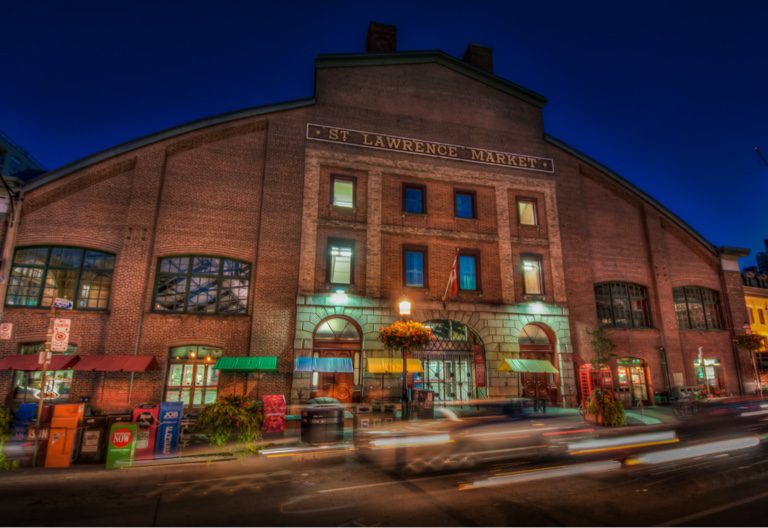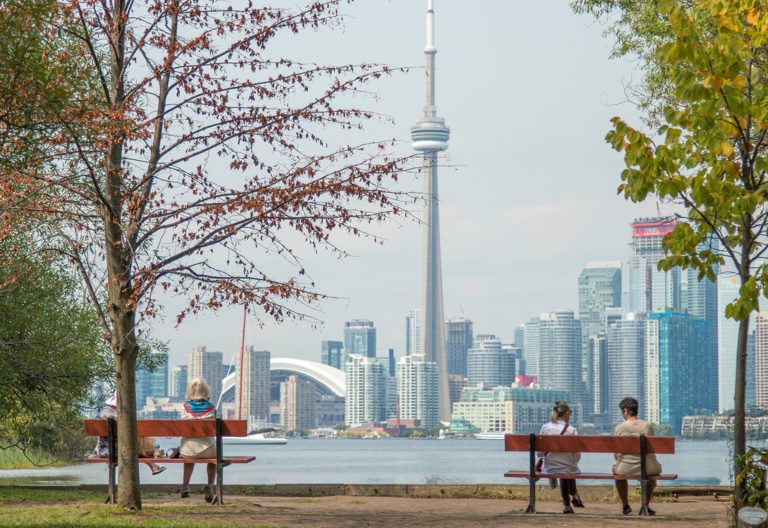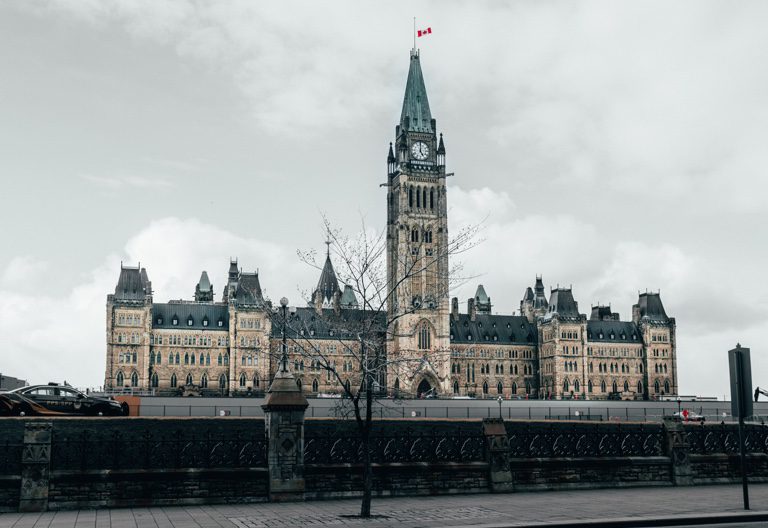International Student Population
With 6,42,000 immigrant students in 2019, Canada’s foreign student population has tripled over the past decade. This makes Canada the third most sought-after study destination globally after the US and Australia.
Moreover, the number of Indian students studying in Canada has been rising at an astonishing rate every year. In 2018, 172,625 Indian students were studying at Canadian universities.

Country and Cities Population
With a population of around 37,779,537, Canada accounts for 0.48% of the total world population. While it is the second-largest country in the world, significant parts of Canada are sparsely inhabited, and more than half of the Canadian population lives in just two provinces – Quebec and Ontario.
Top Canadian cities based on their population are:
1. Toronto
2. Montreal
3. Vancouver
4. Calgary
5. Edmonton
Demographic
With one of the highest per capita immigration rates in the world, Canada admitted a total of 341,180 immigrants in 2019. Immigrants make up about ⅙ of the total population of Canada and Asians are a major contributor. One of the major reasons why people from around the world choose to work in Canada is that it has friendly economic policies.
Domestic Travel
Canada is a vast country and distances between cities could be greater than you think. You might have to use different modes of transport to get around Canada.
Find more details about modes of domestic travel in Canada here and choose the best mode of transport for yourself.
Air
Taking a flight could be a good option in Canada if you want to travel to popular cities. For remote regions, flights could prove quite expensive in Canada. Air Canada is one of the country’s major airlines that offer low-cost travel.
Train
Canada has a clean and efficient rail transport. VIA Rail, the only passenger train operator in the country links the major Canadian provinces. Travelling by train is the right choice if you want to explore the beautiful scenery of Canada, but you will need flexible schedules and the train departures are limited.
Bus
Buses in Canada are safe, comfortable, and considerably cheaper than other modes of transport. Also, they are sometimes the only mode of public transportation available in the remote regions of Canada.
Ferry
One of the best and affordable ways to explore and travel Canada is via ferry as it has the longest coastline in the world and the world’s largest lakes. At the time, ferry travel may be more of a scenic choice, but it is mostly a preferred way of moving around on the British Columbia coast.
International travel
The best way for Indian students to travel to Canada is by air.
Regular flights operate from major Indian cities like New Delhi, Mumbai, Bengaluru, Ahmedabad and Chandigarh to CanadaHowever, suppose you are looking forward to reaching Canada at the earliest. In that case, you should take Air Canada’s direct flights from Indira Gandhi International Airport, Delhi or Mumbai International Airport to Toronto in Canada.
Some of the major international airports from flights incoming from India are:
Toronto
Montreal
Vancouver
Calgary
Accommodation & meal
Canada is home to a large number of immigrants implying that the country is a mix of different cultures and people. As an international student, you, too, will be welcomed there.
Your accommodation options, however, depend on the budget you have planned for your stay in Canada. The international students’ office or website of the college or university you are attending are the first two places you should look upon to find suitable accommodation.
Some of the popular options in Canada are:
Sightseeing
As an international student, you’d probably want to explore Canada as well as study there. From world-class cities to impressive mountains and stunning beaches, Canada has everything for you to explore and admire.
As students, one of the best and affordable ways to travel across Canada is by booking a sightseeing tour. Some of the popular sightseeing options in Canada are:
1. Niagara Falls
2. Banff National Park and the Rocky Mountains
3. Old Quebec
4. CN Tower
5. Jasper National Park
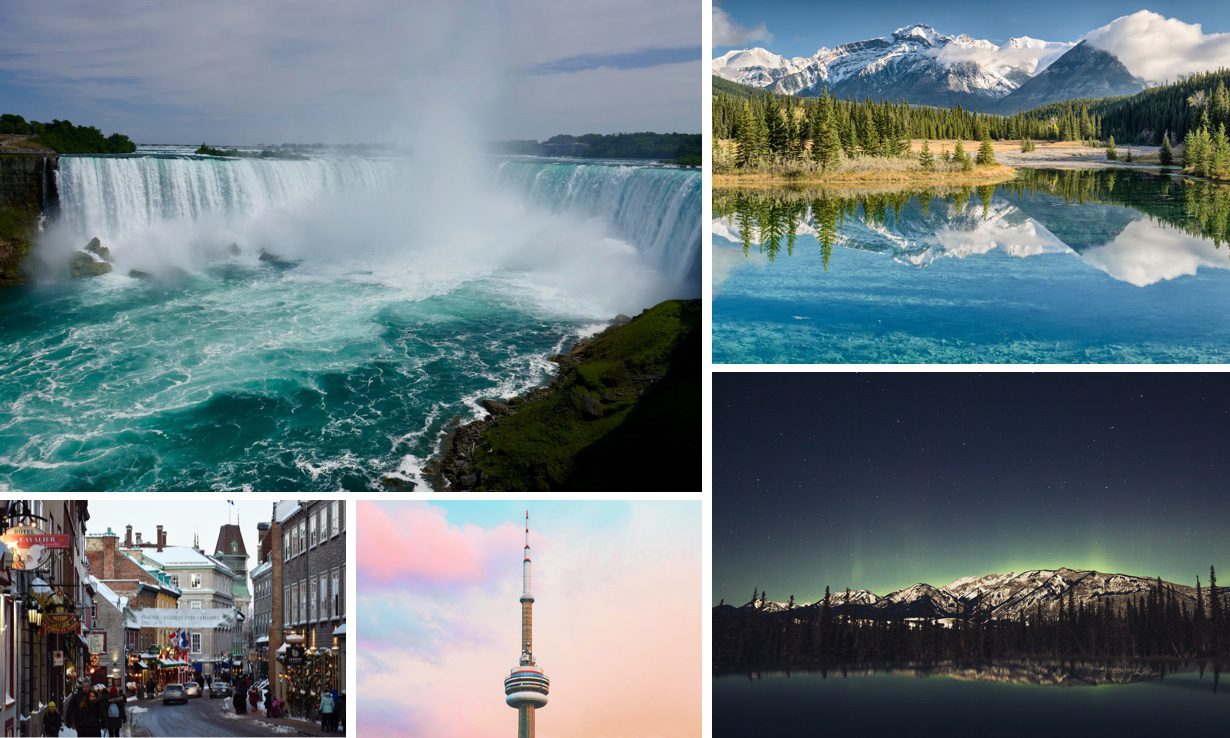
Weather
The first thought that comes to our minds when we think of Canada is cold temperature. But climate varies significantly across Canada as it is a vast country with five different time zones. Daytime summer temperatures can rise to 35°C and higher, while lows of -25°C are not uncommon in winter. More moderate temperatures are the norm in spring and fall. Summers can be hot and dry on the prairies, humid in central Canada, and milder on the coasts. Spring is generally pleasant across the country.
Major cities like Toronto, Vancouver, Calgary, Montreal and Halifax experience all four distinct seasons in a year.
Currency
Canada uses the Canadian Dollar (CAD). While it is preferable to use credit and debit cards, foreign currencies can be easily exchanged at airports, border crossings, shopping malls and banks.
Religion
While a majority (38.7%) of Canadians follow Christianity, Canada is not a very religious country in general. The younger generations in Canada do not believe in identifying themselves with any particular faith or religion and constitute about 23.9% of the total population.
1.5% of Canadians follow Hinduism and 1.4% follow Sikhism. Therefore, Indians do not face any religious discrimination in Canada as its people are quite progressive that way.
Nightlife
Canadians are a party-loving bunch of people, and therefore the nightlife of Canada is always hot and happening. With all its thriving music concerts and bars and pubs, you won’t feel even a bit of boredom in Canada.
Moreover, Canada hosts so many music festivals every year that you will love your stay here. Five best cities in Canada with an awesome nightlife are : Toronto Ontario, Montreal Quebec ,Vancouver British Columbia ,Halifax, Nova Scotia ,St. John’s, Newfoundland
Why live and work here
Standard of Living
Canada is the number one choice for immigrants when they are deciding where to live and work. Living here can indeed be a life-changing experience for you because the lifestyle of Canada is of the highest quality.
Being one of the safest and comfortable countries in the world, Canada has scored ahead of other developed countries like the UK, US and Sweden on parameters like quality of life, entrepreneurship and economic activity.
The country’s economy is one of the largest in the world, making it a wealthy nation with substantially high living standards, and your decision to study abroad in Canada won’t be wrong.
Healthcare
In general, Canadians are healthy people with an average life expectancy of 82 years. While Canada is famous for its free health care system – Medicare – a majority of these services are only available to Canadian citizens and permanent residents. As international students, you will have to arrange for health insurance for the duration of your course.
The health insurance provisions vary from one province to another, and therefore exact details will depend on the province you choose to study in Canada.
Economic Background of the Country
Canada is the world’s second-largest country by land area and has the tenth-largest economy. Ever since the beginning of the 20th century, the country has started focusing more on manufacturing industries and services and less on agriculture and mining.
Economic relations with its Southern neighbour – United States – are crucial to the economy of Canada. The excellent lifestyle of Canada is a result of its robust economy and booming services sector that employs a large population of immigrants.

Stay back after studies/work permit
Once you study in Canada, you will never feel like leaving the place. A majority of students love the lifestyle of Canada and most likely stay back in this blissful country.
Canada’s Post-Graduation Work Permit Program permits students to work up to 3 years after their studies. This time duration may further vary according to the course duration.
Students enrolled in a 1-year study program, are permitted to stay back in Canada for a year after course completion. Those pursuing a program of two years could stay back for three years for work.
The student visa does not automatically offer the privilege of a post-study work permit to international students; they must apply for it within 180 days of course completion.
For more details about the program, visit the official website.
Student part-time jobs and wage rates
Having a part-time job and getting extra money can be the best way for international students to pay for tuition fees, rent or and everyday expenses. The good news is that Canada allows students to work part-time while studying. Some companies even extend the work benefits to part-timers.
The Canadian student visa allows you to work 20 hours/week along with study. You can reduce the number of hours if you feel you aren’t able to cope with the work.
Some popular part-time jobs international students can take up in Canada are:
1. Translator -: Since Canada is a multicultural country, working as a freelance translator can be a good deal. The pay varies between $14/hr and $55/hr.
2. Content writer -: A freelance writer can earn somewhere between $40 and $60 per hour.
3. Tutor -: If you are an expert in any subject, you can put your abilities to work by providing tuition to children. A tutor gets typically paid between $30 and $60 per hour.
4. Social media assistant -: It involves updating Facebook, Instagram, Twitter, Snapchat and other sites for companies. The payment can be a fixed amount per month or up to $21 per hour.
5. Barista -: If you love working in an enjoyable environment, there is no better place than a coffee shop to choose. Flexible working hours is an added advantage other than decent pay of up to $11.41/hour.
5. Uber driver-: Uber driver has become a popular part-time job among international students in Canada. To work as an Uber driver, the student needs to be at least 21 years of age, have a car and a Smartphone. The most profitable work times are during early mornings, evenings and weekends. Your earnings depend on how frequently you drive with pay ranging between $14.00 and $25.58 per hour
How to find a part-time job
All colleges and universities in Canada have bulletin boards where on-campus job openings are advertised. You can also register on job search websites.
Some of the popular job search websites are:

Seek

Indeed

Careerone

Apply Direct
Job culture ethics
As a newcomer, you might find the work culture in Canada quite different than what you’ve seen in your country.
Canadians value teamwork a lot, and therefore they respect each other at the workplace. You, too, would be expected to follow the same culture and lifestyle of Canada.
You can read more about their work culture here.

Popular student cities in Canada
Student-friendly environment and affordable fees make Canada a popular study abroad destination among students. Some of the best student cities in Canada include:
Toronto
Home to many prestigious universities, Toronto welcomes students from different parts of the world to study in Canada. As many as 160 languages are spoken in this part of Canada. Some of the top-ranking universities in Toronto are the University of Toronto, Humber College, Trent University, etc.
Vancouver
Students from diverse backgrounds choose Vancouver for their higher studies. Besides educational opportunities, Vancouver is also known for its magnificent landscapes and adventurous activities like skydiving and hiking.
Ottawa
World-class educational institutes and excellent faculty make Ottawa one of the best student cities in Canada. Transportation and boarding are also quite affordable here, and you'll find excellent employment opportunities.
Calgary
With open spaces, rivers, mountains and more sunshine than any other Canadian city, Calgary is a beautiful place to study in Canada. Famous for leisure activities it also boasts of the most extensive bikeway system in North America.
Quebec City
TWith all of its picturesque landscapes, multiculturalism, quality of life and international exposure, Quebec can give you the best student experience in Canada. Institutions in Quebec offer affordable tuition fees making the overall cost of living quite low.
St. John's
Friendly people and hundreds of miles of coastline will welcome you to St. John's when you choose to study here. Also known as the 'city of legends', you will feel warm and safe here.
Prince Edward Island
It is Canada's smallest province but has some fantastic opportunities in higher education, particularly in trades and science. The University of Prince Edward Island has one of the lowest tuition rates across Canada, making it one of the best student cities in Canada.
Saskatchewan
Apart from the presence of one of Canada's leading research universities, Saskatchewan has many quality education and work opportunities for international students and graduates who choose to study here.
Halifax
Halifax has some of the best universities in Canada. Dalhousie is the biggest institution here that offers programs in medicine, law and engineering. Then there's the CBU, University of King’s College, Mount St. Vincent University and St. Mary's University.
Canadian People & Culture
History of Canada
Canada was once a colony of the British and French. This can be seen in the influence it had on the culture of Canada in Quebec province, which was colonized by France and other regions colonized by the British.
Canada was officially born in 1867, and from thereon, it became the country that it is today by acquiring territories from the British possession.
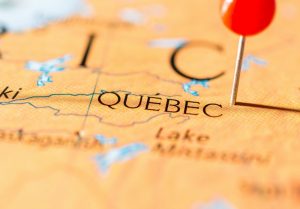

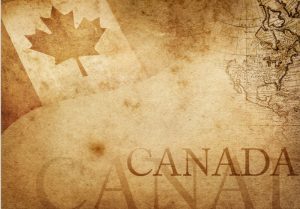
Demographic information
With an estimated population of 37,782,453, Canada is the 39th most populous country in the world. Its annual population growth rate for 2018/2019 was 1.4%, the highest since 1989-1990. The population growth rate of Canada is the highest among G7 countries that include the USA, UK, Germany and France.
Language
Canada is one of the most multicultural countries in the world. This is the reason people here speak more than one language. Except for the province of Quebec that speaks French, most of Canada speaks English. So it should not be a problem for you to settle and adjust according to the culture of Canada.
Some other languages spoken widely in Canada include:
1.Punjabi
2.Mandarin
National Events
National holidays and events generally mark religious, quasi-religious or patriotic occasions depicting the culture of Canada. Some of the important days in Canada include:
1. Sir John A. MacDonald Day
2. Black History Month
3. Commonwealth Day
4. Anniversary of the Battle of Vimy Ridge
5. The Stanley Cup
6. NBA Playoffs and Finals
7. Grands Prix Cyclistes de Québec et de Montréal
8. Wheelchair Hockey
Canada organizes several sporting events every year. This gives you a chance to witness some of the most spectacular events.
Main Festivals
Canadians always find a reason to party and celebrate. It wouldn’t be wrong to say that you will enjoy your stay as students here.
Some of the major festivals to participate in while you study in Canada are:
Quebec Winter Carnival
Winterlude
Pacific Rim Whale Festival
Ottawa Tulip Festival
Calgary Stampede
Grand River Pow Wow
Scotiabank Toronto Caribbean Carnival
Kitchener Waterloo Oktoberfest
Celtic Colours International Festival
Toronto Cavalcade of Lights
Indian festivals in Canada
Canada has one of the largest Indian diasporas in the world. You’ll see communities celebrating Indian festivals like Holi, Diwali, etc. with great enthusiasm.
A large number of Sikhs have also settled in Canada over the years. They celebrate the Sikh festivals like Lohri and Guru Nanak Jayanti, and you can also be a part of these celebrations to feel homely.

Health and Safety in Canada
- Canada's health system for international students
- Insurance & providers
- Student helping NGOs in Canada
Canada's health system for international students
It is essential to understand government policies regarding students’ health and safety in Canada. All international students who study in Canada are required to have health insurance. Not all provinces cover international students in their healthcare plans. In those provinces, you will have to make arrangements for private health insurance coverage.
Insurance & providers
The healthcare of international students is usually not funded by the Canadian government. To ensure their health and safety in Canada, it is advised that they buy a proper health insurance plan from private companies are : Manulife Financial,TuGo,Allianz Global,Sun Life,Ingle International,Cowan Insurance Group,Greenshield
The insurance plans from these firms include some common benefits like hospital expenses and accommodation, Physician charges, Private nurse, Prescription drugs, etc.
Student helping NGOs in Canada
As international students, you could face problems settling in a foreign country. There are several charities and NGOs in the country that offer support services to students coming from abroad and ensure their good health and safety in Canada.
Some organizations that could be of use to you are:
1. International Committee of the Red Cross
2. Oxfam International
3. Médecins sans Frontières (MSF)
4. CARE Canada
You can contact these NGOs in emergencies for support. We also provide you with a list of other organizations that can be of help to you when you are in Canada.
Student Support Centers
Being a country composed majorly of immigrants from around the world, Canada won’t let you down. When you are away from home, you might feel the need of seeking support – academic, mental and emotional.
Students’ health and safety in Canada is one of the topmost priorities of many universities. They offer round the clock support services to their students. You can also avail help from other companies working exclusively to make you feel at home while you study in Canada, like Centre for Canadian International Student Services.
Other organizations offering mental health support include the Jed Foundation, Crisis Services Canada and the Canadian Mental Health Association.
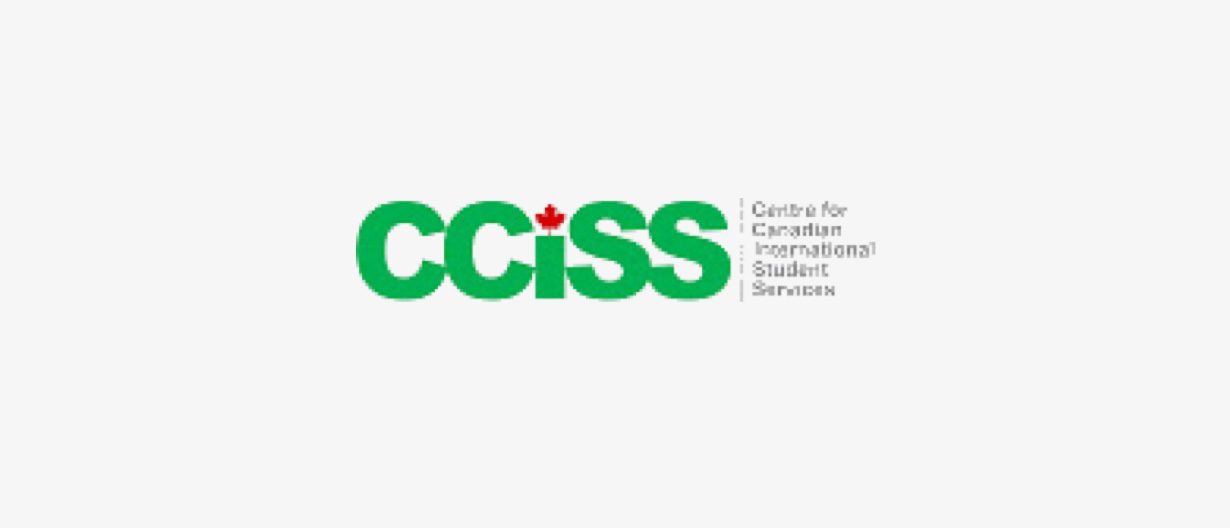
Emergency Helplines
As an international student in any Canadian university, you may, at some point, find yourself in need of help beyond your academic life.
In emergencies, you can call the police, fire or ambulance by calling the central number 911. If you do not know how to speak or understand English, you can also hire interpreters here.
Best Places to Visit in Canada
Canada offers a lot of travel opportunities to its foreign population. While the place you choose to visit might depend on your interests, here are some of the best places to visit in Canada:
Royal Ontario Museum
It is Canada's largest museum showcasing art, culture, and nature from around the globe and across the ages. Home to a world-class collection of 13 million artworks, cultural objects and natural history specimens, the museum is a must-visit for students who love history.
Ripley's Aquarium of Canada
Located in Toronto, the aquarium is a beautiful place to enjoy a trip with friends. You will get to see marine organisms of different varieties, expanding your knowledge of marine ecology.
Rogers Centre
A sports and entertainment facility in the heart of Toronto, this complex hosts several live music and sports events. Ticket prices vary depending on the event you wish to see.
Art Gallery of Ontario (AGO)
This is a beautiful art museum located in Toronto. It also organizes several art exhibitions for students from time to time. You should give a visit.
Niagara Falls
A world-famous tourist destination, it is also one of the best places to visit in Canada. The picturesque falls across Lake Ontario will captivate you with its magnificence. You can plan a trip with your friends while you study in Canada.
St. Lawrence Market
This is a famous public market in Toronto always bustling with crowds. You can spend your leisure time shopping for souvenirs for your family and friends here.
Toronto Islands
A chain of 15 small islands situated in Lake Ontario is a popular recreational destination for students. Cyclists from around the region explore the beauty of these islands. You can also rent boats, kayaks and canoes here.
Capilano Suspension Bridge
This is one of the most popular places to explore in Vancouver. From cliff walking to treetop adventures, there is so much to do here. Students, in particular, enjoy their adventurous trips to the suspension bridge.
Stanley Park
If you are looking for some fun activities amid gloomy days, you should take a day off and spend it at Stanley Park. From swimming to sports, there's a lot of options to explore here, making it one of the best places to visit in Canada.
Parliament Building
You can take guided tours to the Parliament Building of Canada. Situated atop Parliament Hill, the building is an architectural wonder to see and admire.
These diverse sets of holiday destinations for those who study in Canada provide great opportunities to explore the country. While this is not an exhaustive list of the best places to visit in Canada, it surely covers the major tourist attractions.
Immigration & Citizenship in Canada
Student visa policy subclass 500
If you are interested in living and working in Canada, you will have to apply for a visa. There are different categories of visas for students and skilled employees. Read on if you want to embrace the Canadian quality of life and want to know how to get Canadian citizenship in the future.

Student Direct Stream (SDS)
Study Direct Stream (SDS) is a program launched by the Immigration, Refugee and Citizenship Canada that enables faster processing of visas for Indian students. As opposed to the usual time of 2-3 months, Indians can now avail their visa in 4-6 weeks. While most applications are processed within 20 calendar days, you should check the official website to know Canada Immigration Rules for the same.
The application for the visa mentioned above can be filed online on the official website, which also tells you how to get Canadian citizenship in the future.
Extend your visa
If you want to stay in Canada for further studies, you should apply to extend your study permit at least 30 days before your current permit expires.
You need to file an online application for the same, here.
Just make sure that you have all the needed documents and abide by the Canada Immigration Rules.

Canada's plans to invite immigrants
According to the federal government’s 2020-2022 Immigration Levels Plan, Canada is planning to welcome one million new permanent residents over the next three years.
If you are planning to move to Canada, you should keep yourselves updated of the latest developments in the country’s immigration department.
PSW- PGWP
Students who have graduated from eligible Canadian universities are permitted to work under the Post-Graduation Work Permit Program (PGWPP).
Eligibility criteria for PGWP
1. You must have studied full time in Canada and your course duration should be at least 16 months.
2.You must apply for a work permit within 90 days of completing your course. You must have written proof from the college/university indicating the same. For example, a transcript or an official letter.
3.You must have a valid student visa when you apply for the PGWP.
Duration
If the official length of your program of study is:
1.Less than eight months: you are not eligible for the PGWP program.
2. Less than two years but more than eight months: you will get a work permit for a period equal to your course duration.
3.Two years or more: you will be granted a work permit three years
The Canadian government has marked some designated learning institutions, a list of which can be accessed here. If you have completed your study from any of the universities mentioned in this list, you can apply for the post-work permit here.
PR & Citizenship
When you start working in Canada, you won’t feel like leaving the country. If you wish to stay there permanently, you can obtain a PR card.
There is a difference between Permanent Residents and Canadian Citizens. While permanent citizens enjoy most of the rights of citizens, they cannot vote or hold jobs of high-level security clearance.
To keep your permanent resident status, you must have been in Canada for at least 730 days during the last five years.
To be eligible for a PR Card, you must:
1.Be a permanent resident of Canada.
2.Be physically present in Canada.
3.Meet the residency requirement (see Appendix A – Residency obligation)
4.Not be under an effective removal order.
5.Not be a Canadian citizen
6.Not be convicted of an offense related to the misuse of a PR Card.
To be eligible to become a Canadian citizen, you must:
1.Be a permanent resident.
2.Have lived in Canada for 3 out of the last 5 years.
3.Have filed your taxes, if you need to.
4.Pass a test on your rights, responsibilities and knowledge of Canada
5.Prove your language skills by giving IELTs .
You can check the other requirements for obtaining the PR card and how to get Canadian citizenship on the same website.
Spouse/ family members & dependents
You can take your spouse or dependent children with you to Canada on a study permit. The decision will depend on the will of the Canadian visa officer.
You will need to obtain a spousal open work permit if your spouse wants to work in Canada.
Language requirements
International students need to prove proficiency in English or French to obtain the study permit. IELTS is the preferred test for proficiency in English, with some institutions also accepting the Cambridge English: Advanced or TOEFL exam score.
1.TOEFL Internet-Based Test: Total score of 90 with no section less than 21.
2. IELTS (Academic): Overall band score of 6.5 with no band less than 5.5.
3. PTE: Overall band score of 50 with no band less than 45.
5. Duolingo: Overall 100 for UG and 110 for PG.
Or If you want to apply for PR you have to appear CELPIP test:-
The minimum score in CELPIP required is 7 under the category of Canada Express Entry and under the category of Federal Skilled Worker Program are minimum 4.
For French, you can opt for DALF, DELF, or TCF, although the TEF exam is the most common option.
You can choose the test, pay the fee, and book your dates well in advance.
You can contact us to know more about preparations for the English proficiency test.
We will tell you how to get Canadian citizenship and also help you gain one.



